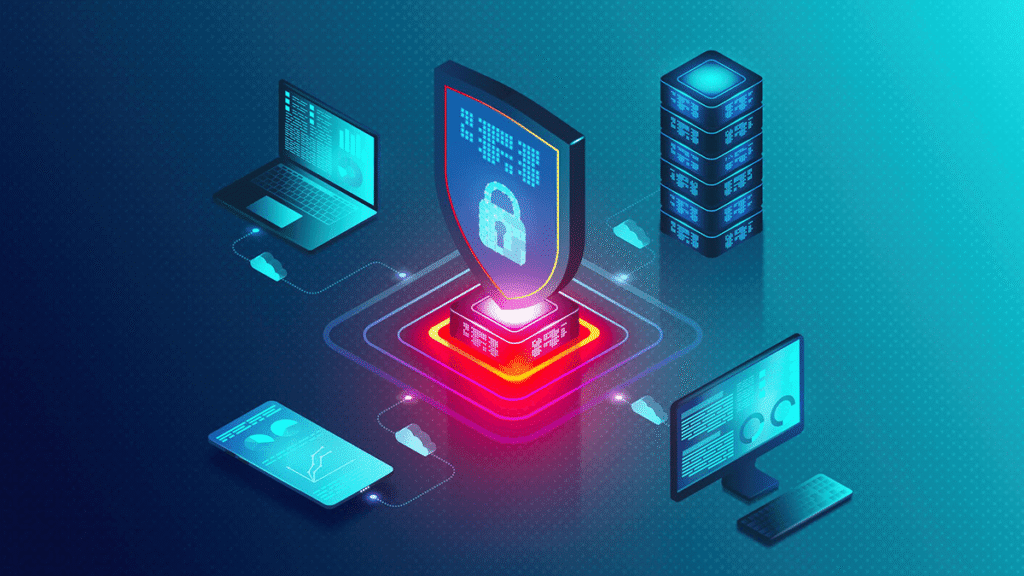In the age of constant digital connectivity, Cybersecurity in 2025 has become a priority for individuals and businesses alike. With cyber threats evolving rapidly—ransomware attacks, phishing scams, and AI-driven hacking attempts—having the right software to protect your privacy online isn’t just a precaution, it’s a necessity. The good news is that 2025 brings a new generation of cybersecurity tools designed to keep your data secure, your identity protected, and your online activity private.
Why Privacy Protection Matters More Than Ever
Online privacy has always been important, but in 2025 the risks are greater than ever. Hackers are leveraging AI to create more convincing phishing emails, while deepfake scams and identity theft cases continue to rise. At the same time, companies collect massive amounts of user data, and not all of them handle it responsibly.
To counter these challenges, cybersecurity software now combines artificial intelligence, real-time monitoring, and advanced encryption to give users more control. Whether you’re a casual internet user, a remote worker, or a business professional, the right software can make the difference between safety and vulnerability.
1. Advanced VPNs: Encrypting Your Online Activity
Virtual Private Networks (VPNs) are still a cornerstone of online security, but the latest generation is smarter and faster. In 2025, VPNs offer features like multi-hop routing, AI-based threat detection, and dedicated streaming modes.
- NordVPN Meshnet – Lets you securely link devices anywhere in the world.
- ExpressVPN Lightway – Known for lightning-fast speeds and top-tier encryption.
- ProtonVPN – Focused on privacy with open-source code and no logs.
These VPNs don’t just hide your IP; they prevent malicious tracking and protect sensitive data when using public Wi-Fi.
2. Password Managers with Biometric Security
Weak or reused passwords remain one of the biggest vulnerabilities. Modern password managers go beyond storage—they use biometric login, dark web monitoring, and AI-generated suggestions for maximum security.
- 1Password 9 – Now integrates passkeys and biometric logins.
- Bitwarden – Open-source, affordable, and offers zero-knowledge encryption.
- Dashlane – Includes a built-in VPN for extra protection.
By 2025, these tools also support passkey authentication, reducing reliance on traditional passwords altogether.
3. Next-Gen Antivirus and Threat Protection
Antivirus software has evolved into comprehensive threat management platforms. Instead of just scanning for viruses, they now block ransomware, prevent phishing, and analyze suspicious behavior in real-time.
- Kaspersky Security Cloud 2025 – Uses AI to predict threats before they strike.
- Bitdefender Total Security – Lightweight but powerful, covering all devices.
- Norton 360 Deluxe – Offers VPN, parental controls, and identity theft protection.
These solutions adapt to modern threats, ensuring both personal and professional data remain safe.
4. Secure Messaging and Collaboration Apps
With remote work still widespread, communication security is crucial. Encrypted messaging apps are no longer optional—they’re expected.
- Signal – Continues to lead with end-to-end encryption.
- Element (Matrix) – Open-source, decentralized, and great for teams.
- WhatsApp 2025 Update – Now includes encrypted backups and multi-device privacy.
For professionals, platforms like Slack Enterprise Grid now come with zero-trust authentication, ensuring sensitive conversations remain private.
5. Cloud Security and Backup Software
Losing files to ransomware or accidental deletion is devastating. Modern cloud backup solutions now integrate ransomware recovery and end-to-end encryption, ensuring your data is safe no matter what.
- Acronis Cyber Protect – Combines backup with active ransomware defense.
- iDrive 2025 – Affordable, encrypted backups across multiple devices.
- Backblaze – Simple, unlimited cloud storage with strong encryption.
For travelers or businesses, these services ensure peace of mind when files are constantly moving across devices. And for those who need to transfer large files online securely, pairing cloud backups with encrypted transfer tools adds another layer of protection.
6. Identity Theft Protection Software
Identity theft is a growing concern, and 2025 brings powerful software that monitors personal data across the web.
- Aura – Monitors credit reports, bank accounts, and SSNs for suspicious activity.
- IdentityForce – Includes insurance coverage for identity theft victims.
- LifeLock – Long-time leader in identity protection with credit monitoring.
These services provide alerts within minutes of suspicious activity, allowing users to respond quickly.
7. AI-Powered Firewalls
Finally, modern firewalls aren’t just for businesses—they’re now packaged for home users too. AI-powered firewalls analyze traffic patterns in real time and can block suspicious behavior instantly.
- GlassWire Elite – User-friendly with visual traffic analytics.
- pfSense Plus – Open-source with enterprise-grade customization.
- Sophos Home Premium – Professional-grade firewall for families.
Final Thoughts
Cybersecurity in 2025 is all about proactivity. Instead of reacting to breaches, today’s software anticipates and prevents them. From VPNs and password managers to secure messaging apps and AI firewalls, the tools available today provide comprehensive protection for anyone who goes online.
The bottom line? Protecting your privacy online is no longer optional—it’s essential. Investing in the right software not only shields you from hackers but also gives you peace of mind, whether you’re working, shopping, or simply browsing.


